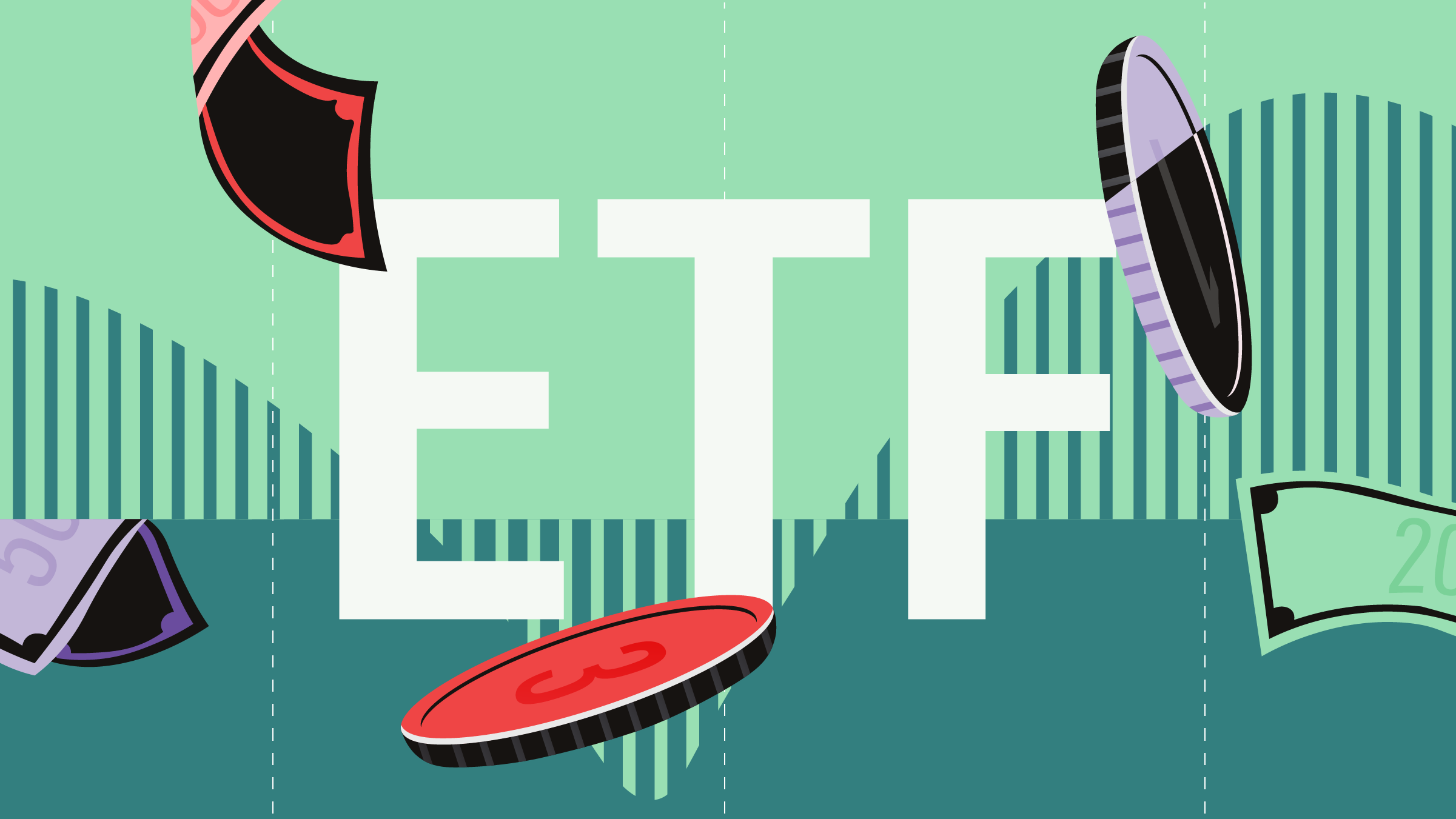Christian Charest: For Morningstar, I'm Christian Charest. As of June 30th, assets under management for exchange-traded funds in Canada had reached more than $130 billion, which is a one-year increase of more than 27%. And while there are number of new ETFs that are actively managed, the vast majority of those assets are going to passive index strategies. So, does this mean the end is approaching for active management? To talk about this, I'm joined today by Karl Cheong, Head of ETFs at First Trust.
Karl thank you very much for being with us today.
Karl Cheong: Thank you Christian.
Charest: So, 27%! The mutual fund industry hasn't seen growth numbers like that in a long time. Why is passive investing so popular?
Cheong: So, it comes down to several features that we've talked about in the past. ETFs are inherently cheaper. They are inherently more tax efficient. They are inherently more tax fair, and the average active manager has underperformed the benchmark. The question is, why has it been so difficult for these very intelligent people to outperform the benchmark? I think there are a few reasons.
The first one being the paradox of skill. Back before the internet, it used to be just a few professionals who had access to very good research, competing against a whole group of amateurs that didn't really know an awful lot. Now that's completely reversed. The vast majority of the trading on major exchanges -- 90% plus -- come from machines and professional people, and they are playing to win. To show you how crowded the room has actually become: The CFA charter has been one of the fastest growing programs over the last 20 to 40 years. Back in 1963 there were 263 CFAs. At the end of 2016 there are over 200,000 CFAs. So, all these very intelligent, professional individuals are all competing against each other in the same fish bowl, really.
Charest: And it's a shrinking fish bowl as well.
Cheong: Yeah. And you talk about the growing competition. There is actually a smaller amount of stocks to pick from. Back in 1997 a firm called CRSP out of Chicago, a research-based firm, took a look at the number of stocks trading on major exchanges, and the number of U.S. stocks were about 7,400 back then. Today they are fewer than 3,600. So, what's happening here? There are fewer companies going public, because of all the regulatory red tape. There are more companies taken private, and we've seen a wave in M&A over the last decade. So, what are you left with? You are left with larger, more profitable, older businesses that are easier to analyze and value, and so you have to ask yourself, where is this outperformance going to come from, and is active management dead at this point?
Charest: What is the future of active management then?
Cheong: I completely believe active management is not dead. It is just evolving. The human behaviour always is looking for the home run. That's why we are so interested in marijuana stocks and in bitcoin, for example. Outperformance, the idea of outsized returns is very appealing to the end investor. So active management is not dead; it's just evolving.
Charest: And a lot of research has been done recently, including here at Morningstar, on the nature of the active versus passive debate, and there seems to be a consensus that there needs to be a redefinition of what exactly is active.
Cheong: A lot of ETF usage is used very actively. Investors looking to shift through weightings of their ETFs, trying to get alpha. So underweighting utilities, in this rising rate environment. Overweighting Europe is very much an active decision in today's environment. Not everyone is just buying the S&P 500, although this would have been a great strategy over the last nine years. We work with a tremendous amount of portfolio managers that are rebalancing their portfolios, looking from stocks to bonds, for example, or different sectors and styles like large cap, the mid cap or value to growth. And so, what we are seeing is investors are seeking alpha at the asset class level, they are not just concerned about buying this stock or that stock.
Charest: On a related note, there is also an alternative for investors who don't necessarily want to go full active, but don't want to be completely passive. They do want to beat the market and we're talking about factor-based investing -- what some people call smart beta or we at Morningstar call it strategic beta.
Cheong: Right. And so a lot of indexing underneath the hood is very active. You mentioned smart beta ETFs. They automate investment screening criteria of many investment managers such as low volatility, value-growth, but they offer these techniques at much lower prices. The second huge benefit to smart beta is the idiosyncratic risk that you eliminate. The risk that your active portfolio manager wakes up on the wrong side of the bed or gets into a fight with his spouse and comes to work and makes some bad decisions. And so it's completely rules-based and involves no emotion.
What we've seen though is that a lot of the traditional mutual fund managers that have entered the ETF space have either launched smart-beta ETFs or fixed-income ETFs, as they are trying to hide from the fee war that's taking place for the traditional market-cap-weighted exposure. I remember when I first started in this industry, the average Canadian bond fund was charging close to 2%. That hurdle was so high it should be an Olympic event. So, what we've seen over the last little while is those costs have been coming down, and you can access that type of alpha for much cheaper price.
Charest: And investors are also a lot more aware now than in the past about what their portfolio managers are doing. And some of them maybe finding out that they've been paying full price for active management that may not be all that active.
Cheong: Right. And that shows out in the flows globally. When you take a look at actively managed flows, it makes sense to look underneath the hood of what is actually going, because you can actually bifurcate what's actually happening. If you take a look at the intensity of active management or what professionals like to call active share, it tells a story. Take for example activist hedge funds that pressure corporations to either change their corporate structure or their corporate strategy. Activist hedge funds run by Carl Icahn or Daniel Loeb, for example, that take huge concentrated positions in a small number of stocks for example, have been growing their businesses significantly over the last decade, while we are seeing redemptions of actively managed products.
So, to summarize that point: active management is not dead, it is evolving. If as an investor you are going to pick an active manager, do one with lower cost and that's doing something very different than the benchmark, because at the end of the day then, if you are not doing that you are just buying a very expensive index fund.
Charest: Some smart words. Thank you very much Karl, for sharing your insights today.
Cheong: Thank you Christian.
Charest: For Morningstar, I am Christian Charest. Thank you for watching.


















